Filter by
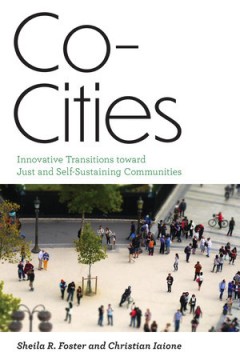
Co-Cities: innovative transitions toward just and self-sustaining communities
"A new framework for experimental and innovative "city-making" for urban resources and services to be developed and governed in a collaborative, socially, and economically inclusive ways"--OCLC-licensed vendor bibliographic record.
- Edition
- -
- ISBN/ISSN
- 9780262369930
- Collation
- 1 online resource.
- Series Title
- -
- Call Number
- -

The making of grand Paris :metropolitan urbanism in the twenty-first century
A critical examination of metropolitan planning in Paris -- the ""Grand Paris"" initiative -- and the building of today's networked global city.OCLC-licensed vendor bibliographic record.
- Edition
- -
- ISBN/ISSN
- 9780262337014
- Collation
- 1 online resource (viii, 313 pages).
- Series Title
- -
- Call Number
- -

Sequel to suburbia :glimpses of America's post-suburban future
How the decentralized, automobile-oriented, and fuel-consuming model of American suburban development might change.OCLC-licensed vendor bibliographic record.
- Edition
- -
- ISBN/ISSN
- 9780262330749
- Collation
- 1 online resource (xii, 231 pages) :illustrations, maps.
- Series Title
- -
- Call Number
- -
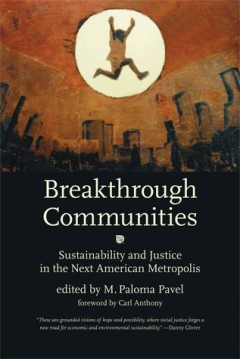
Breakthrough Communities: Sustainability and Justice in the Next American Met…
Activists, analysts, and practitioners describe innovative strategies that promote healthy neighborhoods, fair housing, and accessible transportation throughout America's cities and suburbs.OCLC-licensed vendor bibliographic record.
- Edition
- -
- ISBN/ISSN
- 9780262255479
- Collation
- 1 online resource (xli, 446 pages) :illustrations.
- Series Title
- -
- Call Number
- -
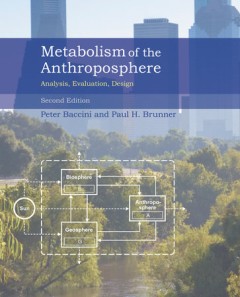
Metabolism of the anthroposphere: Analysis, evaluation, design
Over the last several thousand years of human life on Earth, agricultural settlements became urban cores, and these regional settlements became tightly connected through infrastructures transporting people, materials, and information. This global network of urban systems, including ecosystems, is the anthroposphere; the physical flows and stocks of matter and energy within it form its metabolis…
- Edition
- 2nd ed.
- ISBN/ISSN
- 9780262301329
- Collation
- 1 online resource (x, 392 pages) :illustrations, maps
- Series Title
- -
- Call Number
- -
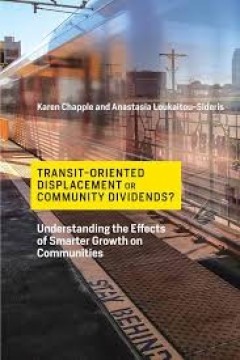
Transit-oriented displacement or community dividends? :understanding the effe…
An examination of the neighborhood transformation, gentrification, and displacement that accompany more compact development around transit. Cities and regions throughout the world are encouraging smarter growth patterns and expanding their transit systems to accommodate this growth, reduce greenhouse gas emissions, and satisfy new demands for mobility and accessibility. Yet despite a burgeoning…
- Edition
- -
- ISBN/ISSN
- 9780262352901
- Collation
- 1 online resource (368 pages).
- Series Title
- -
- Call Number
- -
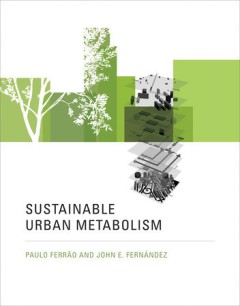
Sustainable Urban Metabolism
A unified framework for analyzing urban sustainability in terms of cities' inflows and outflows of matter and energy. Urbanization and globalization have shaped the last hundred years. These two dominant trends are mutually reinforcing: globalization links countries through the networked communications of urban hubs. The urban population now generates more than eighty percent of global GDP. Cit…
- Edition
- -
- ISBN/ISSN
- 9780262316958
- Collation
- 1 online resource (xiii, 244 pages) :illustrations
- Series Title
- -
- Call Number
- -

The Harvard Jerusalem Studio : urban designs for the Holy City
These studies, conducted in 1980-1984 by teams of faculty, students, consultants, and advisors from the Jerusalem planning community and the Harvard Graduate School of Design, provide a unique sense of Jerusalem's natural and built environment, its livability, cultural diversity, and political and religious tensions.Modern Jerusalem is one of the most fascinating laboratories for urban developm…
- Edition
- -
- ISBN/ISSN
- 0262367963
- Collation
- 1 online resource (326 pages) : illustrations (some color), maps
- Series Title
- -
- Call Number
- 337 SAF h
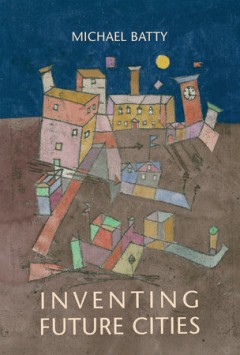
Inventing future cities
How we can invent--but not predict--the future of cities. We cannot predict future cities, but we can invent them. Cities are largely unpredictable because they are complex systems that are more like organisms than machines. Neither the laws of economics nor the laws of mechanics apply; cities are the product of countless individual and collective decisions that do not conform to any grand plan…
- Edition
- -
- ISBN/ISSN
- 9780262349895
- Collation
- 1 online resource (304 pages).
- Series Title
- -
- Call Number
- -
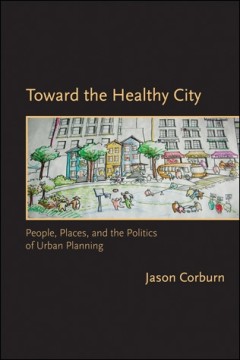
Toward the healthy city People, Places, and the Politics of Urban Planning
A call to reconnect the fields of urban planning and public health that offers a new decision-making framework for healthy city planning.
- Edition
- -
- ISBN/ISSN
- -
- Collation
- 1 online resource (ix, 282 pages) : illustrations, maps.
- Series Title
- -
- Call Number
- -
 Computer Science, Information & General Works
Computer Science, Information & General Works  Philosophy & Psychology
Philosophy & Psychology  Religion
Religion  Social Sciences
Social Sciences  Language
Language  Pure Science
Pure Science  Applied Sciences
Applied Sciences  Art & Recreation
Art & Recreation  Literature
Literature  History & Geography
History & Geography